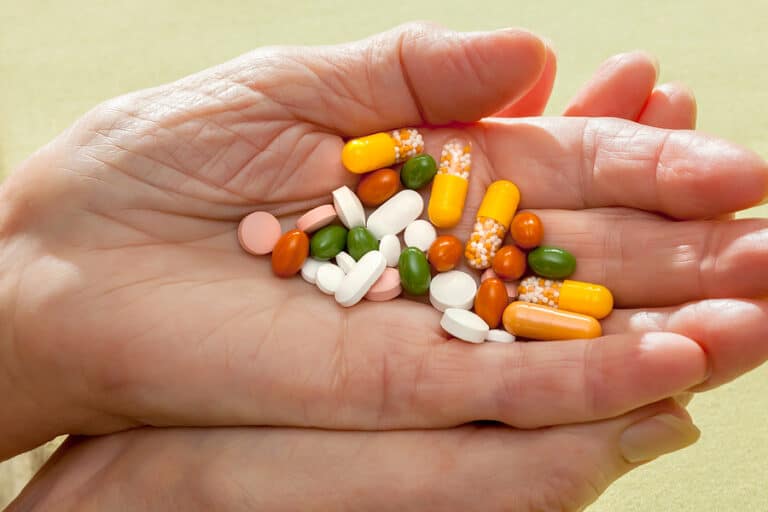Do you know how many minerals and vitamins your elderly loved one should be getting each day? While it isn’t the exact same for everyone, there are some general recommendations detailed in the Dietary Guidelines for Americans in 2020-2025 that you should know about. Remember, women and men need different amounts based on their age. If your elderly loved one is 50 or older, the information below can give you an estimate on how much of each of these minerals and vitamins they may need.
Vitamin B12

Is your elderly loved one not getting enough vitamin B12? If they aren’t getting 2.4 mcg (micrograms) every day, they may need to increase their vitamin B12 intake. In addition, if they are on medications for acid reflux, they may need a different type of this supplement. You can take your elderly loved one to their doctor to discuss the other options.
Calcium
For women who are over 50 years of age, the recommended intake of calcium daily is 1,200 mg. For men who are between the ages of 51 to 70, the recommended intake of calcium is 1,200 mg daily. However, if a man is 70 or older, they should make sure not to get over 2,000 mg of calcium daily.
Vitamin D
Another supplement that your elderly loved one may need to get more of is vitamin D. Did you know that many men and women from the ages 51 to 70 aren’t getting even close to the amount of this vitamin that they need each day? If your elderly loved one is between the ages of 51-70 and they aren’t getting 600 IU (international units) of vitamin D daily, an in-home care provider can remind them to take a supplement each day. If your elderly loved one is 70 or older, they shouldn’t exceed 4,000 IU of vitamin D daily.
Vitamin B6
Last, but not least, your elderly loved one should be getting enough vitamin B6 daily, too. The recommended dose for men who are 50 or older is 1.7 mg daily. If your elderly loved one is a woman who is 50 or older, they should be getting a minimum of 1.5 mg of this vitamin every day.
Conclusion
These are some of the top mineral and vitamin recommendations for those who are 50 and older. If you are caring for your elderly loved one, you should take some time to look at their diet and any supplements they are currently taking. Then, you can go through each of the above minerals and vitamins to see if the recommendations are being met. If they aren’t, there are dietary changes that can be made for your elderly loved one. If those don’t work, you may have to talk to their doctor or home health care provider about adding more supplements into their daily regimen.
If you or an aging loved one are considering hiring In-Home Care in Columbia, SC, contact Heart of the Carolinas Home Care at 864-991-3116. Providing Home Care Services in Greenville, Simpsonville, Greer, Anderson, Spartanburg, Mauldin, Seneca, Laurens, Charleston, Columbia and the surrounding areas.
Sources
https://www.nia.nih.gov/health/dietary-supplements-older-adults
- Is it Possible to Prevent Family Caregiver Burnout? - April 25, 2025
- Home Care Assistance Helps Seniors After A Fall - April 9, 2025
- How Home Care Supports Seniors Who Are Hard of Hearing - March 28, 2025

